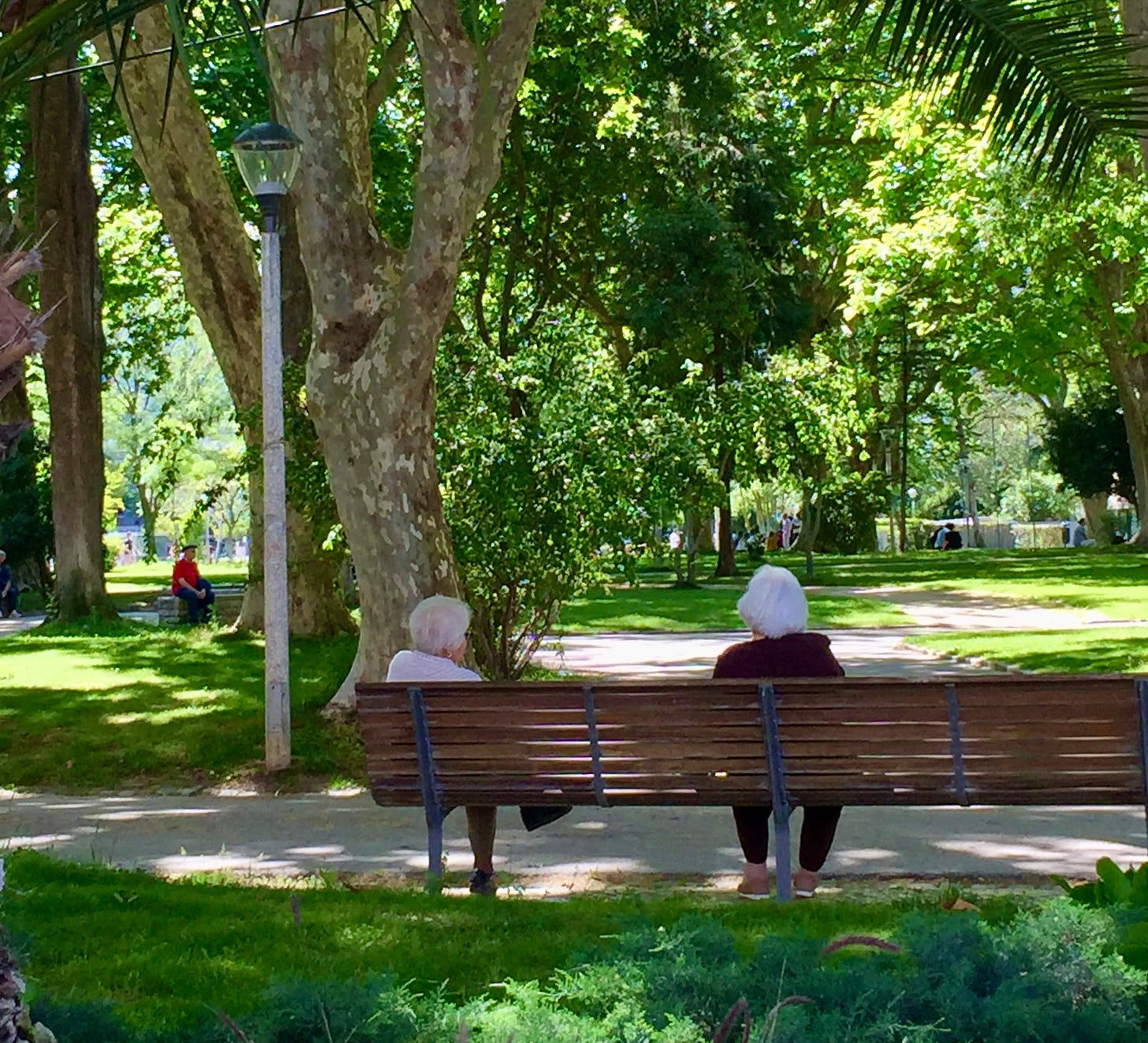Who’s on Your Quaranteam?

PBS News Hour recently interviewed MIT Technology Review's Gideon Lichfield, who decided to break his two-month isolation by creating a Social Bubble, also called a Pod or Quaranteam. He found that living alone without human contact while being isolated for two months was really hard. Really hard is an understatement.
Lichfield offers suggestions as to how to set up a social pod—a small group of friends who don't overlap with people in other bubbles, and who adhere to the same rules set forth by the group.
Even for introverts who love their time alone, this persistent isolation is creating mental health issues for many—introverts or otherwise.
Lichfield says that the people who want to bubble together need to be clear about the rules: when do you wear masks (indoors in public spaces, yes, but outside alone?), do you take your shoes off inside your house, wash all vegetables and packaging after shopping, etc. He says get specific as the increased risk is not minor. If one of the pod members gets sick, everyone is more susceptible because of the closer and sustained proximity of dinners and such with one's bubble-mates.
Lichfield says:
So you know, we discussed in detail all of the things we do and all the precautions we take, and we got on the same page about what we were going to do. And then we waited for two weeks because it was like starting quarantine from zero. We wanted to make sure that we were being completely safe and doing it the same way before we actually met up.
I have an informal quaranteam. There's M, H and her husband, M; and D. They've all been in my house, we meet for coffee, lunches out, and walks in the park. But we have not had "the talk" about who's doing what, when, and with whom. I said to a friend that it's like evaluating a potential sex partner—perhaps a person is a bit too socially promiscuous for my taste, but you'd be okay with them. Strange times, to be sure.
I've yet to venture to Lisbon since the initial lockdown, and I'm not super comfortable with hanging around people who are using public transit. Maybe that's the boundary line of my comfort level right now.
Lichfield and his crew do not meet with others outside the pod members. Not spending time with people outside the pod makes sense, and feels comfortable for me, but I’m not sure that my loosely assembled Q-team would agree.
So now what? Do I back off from this limited social interaction (although it feels like a lot of socializing considering how COVID-19 has reshaped our views about these things and my inclination toward solitude), or do I have the talk with my friends?
I don't know the answer, but I do know I'm placing myself (and my friends) more at risk through these social exchanges. But is this risk more than the threat to my mental well-being? The threat of never seeing anyone until this thing is over? That could be years at this point. It's a calculated risk I think I'm willing to take—but maybe I should self-isolate again for another 14 days.
What about you? Do you have a pod or bubble? If not, would you consider creating one?
LISTEN
The Daily—The New York Times podcast. A brief round-up of the news you need to know (US-centric). When Donald G. McNeil, Jr. is on, I listen. He's articulate, smart, and accessible—this episode, What We’ve Learned About the Pandemic, gives his 6-month view of what we know now. Spoiler alert: he won’t use public transportation.
READ
MIT researchers say these are the unsafe businesses to avoid during COVID-19, and these are okay
My friend’s lovely piece on Stubborn Optimism
Ross Gay: Poet, Professor, Gardener, and Delight-full Human. That same friend, above, and I share a love of Ross’s writing, his voice, and his gentleheartedness. His book The Book of Delights is a most joyful collection of essays. Here’s one of his poems from Split This Rock’s The Quarry: A Social Justice Poetry Database.
A Small Needful Fact
Is that Eric Garner worked
for some time for the Parks and Rec.
Horticultural Department, which means,
perhaps, that with his very large hands,
perhaps, in all likelihood,
he put gently into the earth
some plants which, most likely,
some of them, in all likelihood,
continue to grow, continue
to do what such plants do, like house
and feed small and necessary creatures,
like being pleasant to touch and smell,
like converting sunlight
into food, like making it easier
for us to breathe.
Thank you for reading & subscribing—I appreciate you!
—> other places to find me (occasionally):


